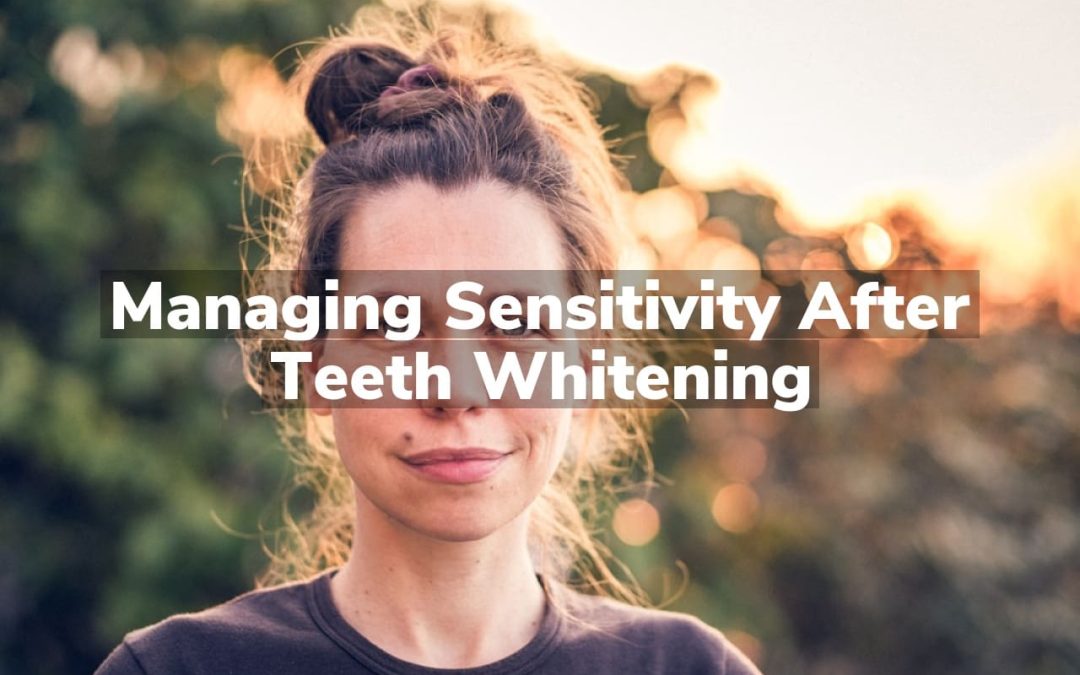Have you ever wondered how to manage the sensitivity that sometimes follows teeth whitening? This post explores the common experiences of sensitivity after the procedure and discusses general ways individuals navigate through the discomfort without recommending specific products or DIY solutions.
Understanding Post-Whitening Teeth Sensitivity
Teeth whitening procedures, whether done professionally or through at-home kits, can often lead to a common side effect known as teeth sensitivity. This sensitivity is typically temporary and arises due to the bleaching agents used in the whitening process, which can make teeth more susceptible to temperature changes and other stimuli. The degree of sensitivity experienced can vary widely among individuals, depending on factors such as the condition of the teeth before the procedure and the concentration of the bleaching agent used.
It’s important for individuals considering teeth whitening to be aware of this potential side effect, especially those with a history of sensitive teeth. For specific concerns related to teeth whitening and its effects on dental health, particularly for smokers or those with significant staining, further reading such as Teeth Whitening for Smokers: What You Need to Know can provide more targeted information. Understanding the nuances of post-whitening teeth sensitivity is crucial for anyone looking to achieve a brighter smile without unexpected discomfort.
Duration of Sensitivity After Whitening
The experience of sensitivity after teeth whitening is a common concern for many individuals. This sensation can vary greatly from person to person, both in intensity and duration. Generally, the period of sensitivity post-whitening is temporary, often lasting from a few days to, at most, a week. This timeframe can fluctuate based on several factors, including the condition of one’s teeth prior to the procedure and their overall dental health. It’s important to understand that this sensitivity is a normal reaction and typically resolves on its own without the need for intervention.
For those considering enhancing their smile, it’s beneficial to consult with dental professionals who specialize in cosmetic procedures. Professional Teeth Whitening in Crown Point offers an opportunity to achieve desired results under the guidance of experienced practitioners, ensuring both the effectiveness of the treatment and the well-being of your dental health.
Common Causes of Teeth Sensitivity
Teeth sensitivity after whitening is a common concern for many individuals. This discomfort can be attributed to various factors, including the temporary weakening of the enamel, exposure of dentin, or irritation of the nerve endings in your teeth. The process of whitening can sometimes exacerbate existing conditions or reveal sensitivities that were previously unnoticed. Additionally, habits such as consuming extremely hot or cold beverages, acidic foods, and even the natural aging process can contribute to the development of sensitivity. Understanding these causes is crucial for managing the condition effectively.
Managing Daily Activities with Sensitivity
After undergoing teeth whitening, it’s common to experience some level of sensitivity. This can affect how you manage your daily activities, from the foods and drinks you consume to your oral hygiene routine. Being mindful of this sensitivity is important as you adjust your daily habits accordingly. It’s all about finding a balance that allows you to continue enjoying life without exacerbating any discomfort. For those looking for more information on maintaining their dental health, exploring comprehensive dental care options is a wise step. Learn more about what’s available by visiting Crown Point Dentist.
When to Consult a Professional
After undergoing teeth whitening, it’s not uncommon to experience some level of sensitivity. While this is generally expected, there are instances where consulting a professional is advisable. If the sensitivity persists for an extended period or if you encounter severe discomfort that hinders your daily activities, seeking advice from a dental professional is a prudent step. They can assess your situation to ensure there are no underlying issues contributing to the heightened sensitivity and provide guidance on the best course of action.
Conclusion
For more insights, read reviews on Google Maps or call us at 219-663-1207.

